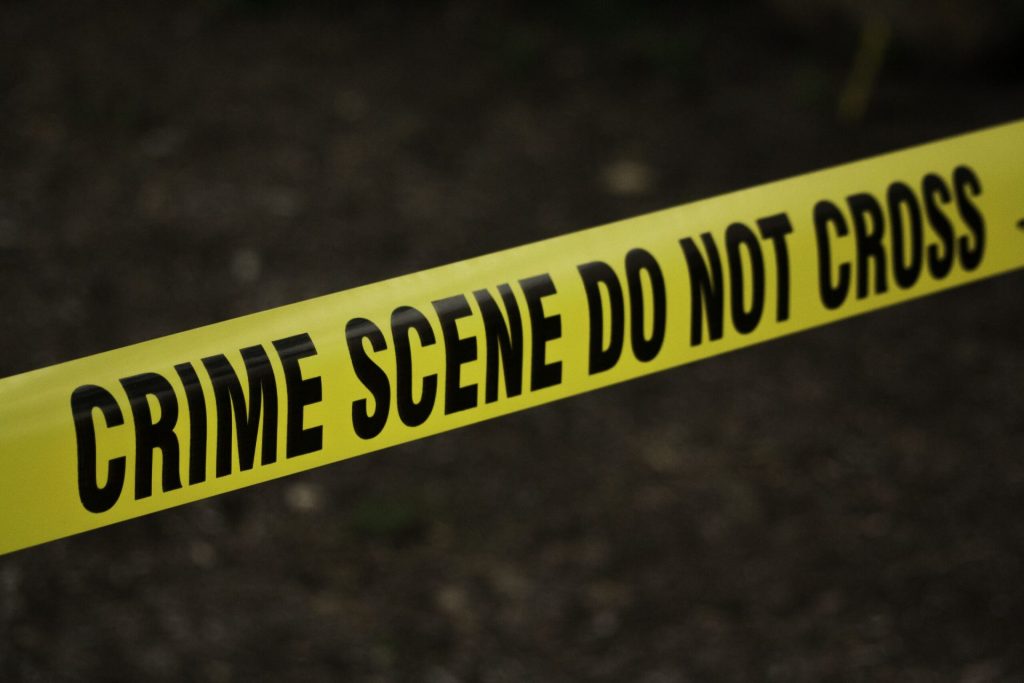The first duty of any government is to protect the lives and livelihoods of its people. We have seen where crime has become more prevalent in our communities and on our streets. In 2022, St. Vincent and the Grenadines recorded a record-breaking homicide count of forty two (42). With nine (9) reported homicides for 2023 so far, it would appear that we are on course to break last year’s record.
Clearly, we are headed in the wrong direction. We are yet to hear of a plan to fight crime from the current regime, including the Commissioner of Police. The administration’s refusal to acknowledge the depth of this crisis shows that they are overwhelmed by it and lack solutions. The Minister of National Security, Dr. Gonsalves, has failed to be ‘tough on crime and the causes of crime’ as promised.
The Better Way
The present government does not have the will, the moral authority, nor the competence to tackle the problem. They lack ideas and, therefore, lack solutions.
There is a better, more hopeful alternative that will improve life for our people and make SVG a beacon of good governance. We have called for effective means to fight crime, not merely with words but with a clear plan to action, which we will implement as soon as we replace this failed government. To be effective, we must understand what gives rise to crime, then develop strategies and programs to address the problem.
Accordingly, we call for the implementation of the following measures: We must focus on Crime Prevention. Remember, an ounce of prevention is still better than a pound of cure. We should therefore invest heavily upfront, on crime prevention. In this regard, the programmes outlined in the NDP’s Spiritual and Social Redemption Charter should be implemented. The Charter promotes positive community-oriented programs that would steer vulnerable young people away from crime towards socially positive behaviour.
We must restore trust and confidence in the police and the criminal justice system. Trust in the system now is shaken and broken. Political connections should not shield anyone involved in a shooting, theft, domestic violence or other crimes from proper investigation and prosecution. Justice must be equal for all. This will help everyone and will help the police in their work and their lives. They and their families are members of society and like the rest of us are equally vulnerable to crime and violence.
Further, the police cannot solve crimes by themselves. They need the community to provide information during investigations and to be witnesses in criminal cases. We can promote this by implementing and pursuing community policing. With specific training in community policing, the police would engage in trust-building activities in communities. For example, regular meetings between the police and community members should be introduced so that they would work together to prevent and solve crimes. The police must see their mission as serving and protecting people and be keen to embrace the community in so doing. We must also increase the presence and visibility of police in our streets and communities, not in a hostile manner but to assure people that they are there to protect them.
We need a well-resourced and well-equipped criminal justice system. There continues to be an outcry in our country about the ineffectiveness of our criminal Justice system that too often fails to impose appropriate penalties to deter offenders. Recall the case last year of indecent assault of a 4-year-old girl by an adult male in which the penalty was a mere 4 years in jail. The public was outraged by this light sentence and called for stiffer penalties in such cases. We totally agree with that call. Creating an effective and well-resourced criminal justice system involves the police, the Director of Public Prosecutions, the courts (i.e., magistrates and judges) and the prison system. It is vital that these components are appropriately equipped and that they function professionally and independently.
It also involves (i) reviewing our criminal laws and revising them to provide greater sentencing options for magistrates and judges; (ii) introducing measures that would improve access to justice; (iii) increasing the number of magistrates; (iv) expanding the High Court and improving its facilities; and (v) upgrading forensic laboratory services to expedite investigation and prosecution of offences and thereby eliminate the backlog of criminal cases.
The system must also provide support for victims of crimes such as rape, sexual assault, and domestic violence to help them recover and be able to resume their lives as best they can.
Further, we must promote rehabilitation of offenders. Fighting crime is not only about punishing offenders; it must also involve rehabilitation. Offenders should be provided with programs that would help to keep them from reoffending and becoming a perpetual menace to society. In this regard, we should establish a Young Persons Rehabilitation Centre for non-violent young offenders. This will prevent many young offenders from becoming hardened criminals, lost to a life of crime.
Focusing on rehabilitation is not coddling criminals. On the contrary, it is effective crime fighting that protects all of us. Rehabilitation has been proven to work and is cost-effective. We should also re-introduce the Police Cadet Service to provide young people with an avenue for entering the Police Service.
We must professionalize and modernize the police service. To achieve the best outcomes in crime fighting, the best officers must be recognized, supported, and rewarded. This includes reviewing remuneration and promotion practices for the police, including the Auxiliary Police, and ensuring that they are done, not as political favours, but on merit. Fairness is key to success.
Modern police stations should be constructed in suitable locations. These new stations and existing ones must be equipped with the basic tools for fighting crime, notably reliable transportation and modern communication and crime fighting technologies. Extensive and ongoing training of police and prison officers is needed in areas such as information technology and investigation techniques.

